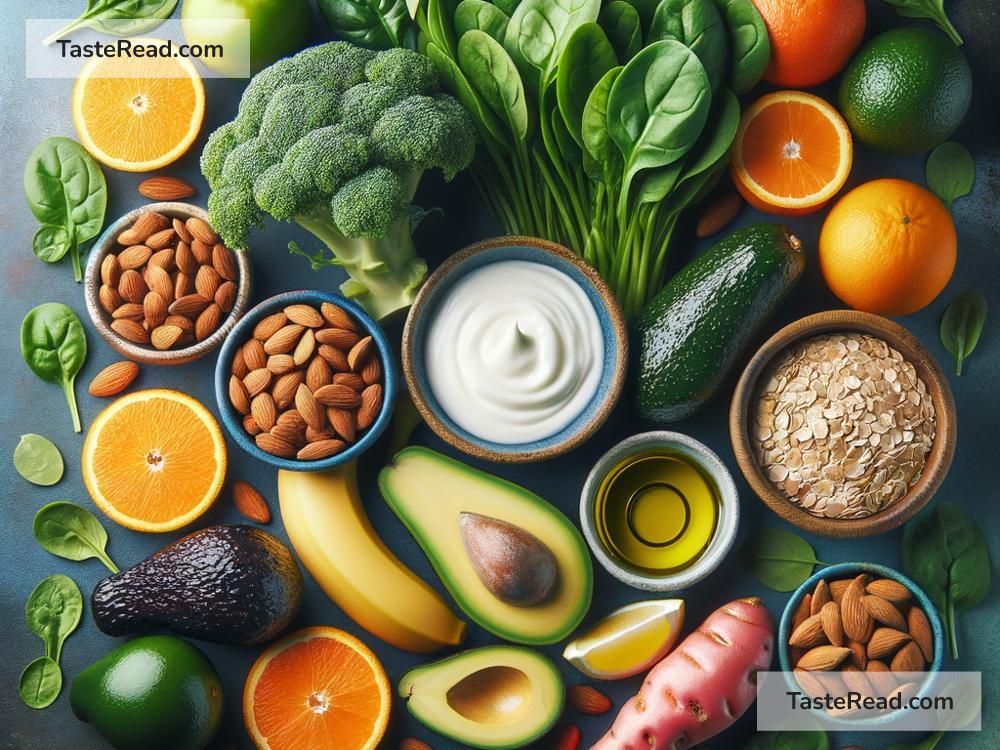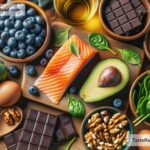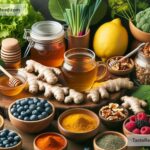Improve Vitamin Absorption with the Right Foods
Vitamins are essential nutrients that help our bodies work properly. They play a role in everything from improving our immune system to keeping our bones strong and our skin healthy. But did you know your body needs the right foods to absorb these vitamins effectively? Certain combinations or types of foods can boost how much your body gets from the nutrients you consume.
In this blog, we’ll explore which foods help improve vitamin absorption, so you can make the most out of your meals.
What Does “Vitamin Absorption” Mean?
Vitamin absorption is the process where your body takes nutrients from food and uses them for energy, growth, and repair. However, not all vitamins are absorbed equally in the body. Factors like the form of the vitamin, the foods you eat, and even your digestive health can play a big role.
Vitamins are generally divided into two types:
-
Fat-Soluble Vitamins (A, D, E, K)
These vitamins dissolve in fat and are stored in your body for later use. -
Water-Soluble Vitamins (B-complex and C)
These dissolve in water and must be replenished regularly as they are not stored in your body.
Foods That Improve Vitamin Absorption
Let’s look at how certain foods can help your body absorb vitamins better.
1. Healthy Fats for Fat-Soluble Vitamins
Fat helps your body absorb vitamins like A, D, E, and K. Without enough healthy fat, your body might miss out on these essential nutrients.
What to Eat:
– Avocados: Rich in healthy monounsaturated fats that aid absorption of fat-soluble vitamins.
– Olive Oil: A drizzle over your salad or steamed vegetables can enhance vitamin absorption.
– Nuts and Seeds: Almonds, walnuts, and sunflower seeds are excellent sources of healthy fats.
Example Tip: Eating carrots (rich in vitamin A) with some avocado or olive oil can increase your body’s ability to absorb the vitamin.
2. Vitamin C to Boost Iron Absorption
If you’re eating foods with non-heme iron — the type of iron found in plant-based foods — pairing them with vitamin C can drastically improve their absorption.
What to Eat:
– Citrus Fruits: Oranges, lemons, and grapefruits add a vitamin C boost.
– Bell Peppers: These are packed with vitamin C and are easy to add to salads or stir-fries.
– Tomatoes: Include them in sauces or soups for an iron absorption boost.
Example Tip: Combine spinach or lentils (great sources of iron) with bell peppers or a squeeze of lemon juice for better absorption.
3. Calcium and Vitamin D Connection
Vitamin D helps your body absorb calcium, which is essential for strong bones and teeth. Eating foods that provide both calcium and vitamin D ensures proper absorption.
What to Eat:
– Fatty Fish: Salmon and mackerel are rich in vitamin D and also provide some calcium.
– Dairy Products: Milk, cheese, and yogurt are excellent sources of calcium. Choose fortified options for added vitamin D.
– Egg Yolks: A good source of vitamin D to pair with calcium-rich foods.
Example Tip: A breakfast of scrambled eggs with a slice of fortified whole grain bread is a great way to get both calcium and vitamin D.
4. Probiotics for Better B Vitamins
Probiotics, or “good bacteria” found in fermented foods, help support gut health, making your body better able to absorb water-soluble vitamins like B vitamins and vitamin C.
What to Eat:
– Yogurt: Look for varieties with live and active cultures.
– Kimchi and Sauerkraut: These fermented foods help create a healthy environment in your gut.
– Kefir: A tangy, probiotic-rich drink that’s great to include in smoothies.
Example Tip: Pair yogurt with a handful of berries (rich in vitamin C) for a nutrient-packed snack.
5. Pair Zinc with Vitamin A
Zinc helps your body transport and utilize vitamin A effectively. Foods rich in zinc serve as excellent partners for vitamin A sources.
What to Eat:
– Shellfish: Oysters and crab contain high levels of zinc.
– Meat: Beef and chicken are good sources of zinc.
– Pumpkin Seeds: A plant-based option to get zinc.
Example Tip: Add a side of pumpkin seeds to sweet potatoes, which are full of vitamin A, for a tasty and nutrient-packed snack.
Other Tips for Better Vitamin Absorption
Here are some extra tips to ensure your body absorbs nutrients well:
– Eat a Variety of Foods: A colorful plate helps you get all kinds of vitamins and minerals.
– Cook Smart: Steaming vegetables keeps more nutrients intact than boiling them.
– Avoid Too Much Alcohol or Coffee: Both can interfere with vitamin absorption.
– Gut Health Matters: Keep your digestive system strong with fiber-rich foods and probiotics.
Final Thoughts
Good nutrition isn’t just about eating foods rich in vitamins — it’s also about helping your body absorb them properly. By pairing certain foods or adding healthy fats, vitamin C, probiotics, or zinc to your meals, you can maximize the benefits of the nutrients you eat.
Try these tips and combinations in your next meal! A balanced approach makes all the difference for health, energy, and overall wellbeing.


